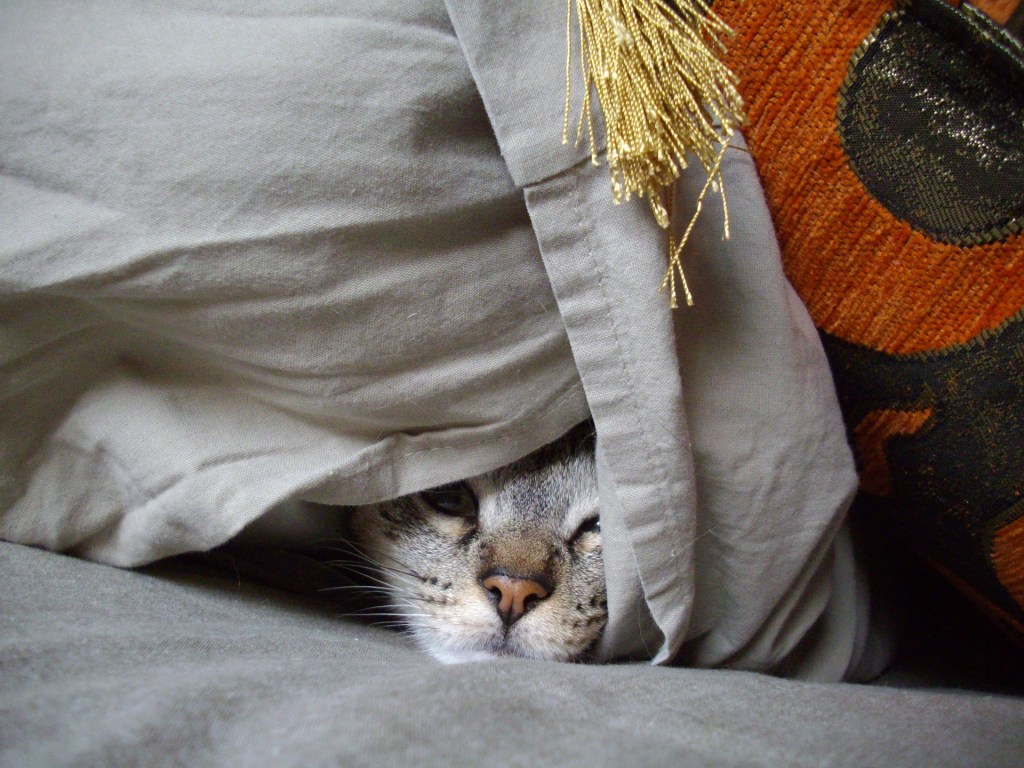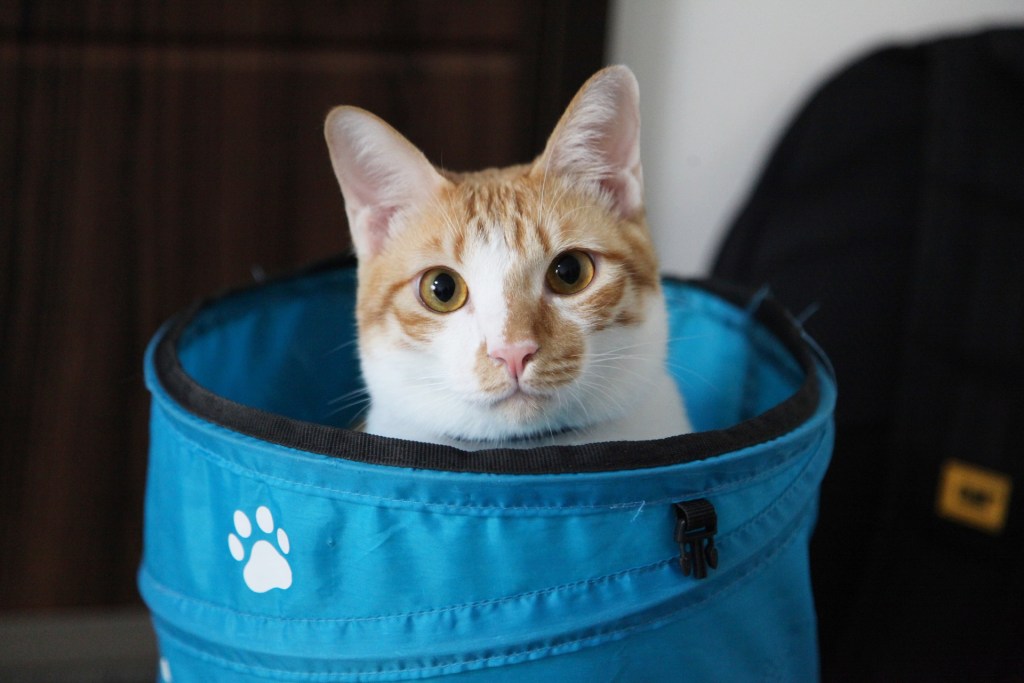Cats are masters at hiding. They can squeeze themselves into tiny spaces, lie silently for hours, and make themselves almost invisible. While any cat will hide at times, if your cat starts hiding more than normal and changes his behavior, it could indicate that he’s sick. Many cats will hide when they’re sick and avoid the other members of their family, including you. If your cat starts hiding excessively and you suspect he’s sick, it’s important to be able to recognize that he needs help and get him right to the vet. While it might seem odd that a cat in need of help would hide from you, there’s actually a logical reason behind this behavior. So, why do cats hide?

Why do cats hide when they are sick?
If your cat’s not feeling his best, you might notice that he hides under the bed or in a closet; if he’s an outdoor cat, he might wander away and seek out a place where he can be alone.
This behavior is caused by your cat’s natural instincts. In the wild, cats seek out a secluded space to protect themselves when they’re sick. Cats know that when they’re sick, they’re vulnerable, and they’re more likely to fall victim to predators. Hiding is your cat’s attempt to keep himself safe until his body heals.
Even though your domesticated kitty is perfectly safe in his home, his instincts still tell him to seek out a secure place to hide.
Additional reasons why cats hide
Cats don’t hide only because they’re sick, though. Fear can also prompt a cat to hide. This is often evident when you first bring a cat home and he immediately finds a space that’s quiet and tucked away from humans and other pets. Some cats are so good at hiding that they seem to disappear.
Stress can also cause your cat to hide. He might be feeling stressed because of the addition of a new pet or a baby to the home, or other changes like construction on the home or the move to a new house. Most cats will hide out until they’re feeling more confident or the situation in the home has settled down again. Then, you’ll see your cat reemerge.

How to tell if your cat is hiding because he’s sick
Because there could be multiple explanations for why your cat is hiding, it’s important to look for additional signs that your cat is sick. Cats who are sick and uncomfortable might take on a different posture, often hunching over or trying to flatten themselves against a wall. Your cat might have trouble walking or might be unusually irritable, which can be a sign that he’s hurt.
You might also notice dietary changes in your cat. Many sick cats will lose their appetites, and they can quickly become dehydrated. They might experience vomiting or diarrhea, or they might have trouble using the litter box. If you notice that your cat hasn’t urinated or defecated in a day or more, it’s a sure sign that something is physically wrong.
You can also use your knowledge of what’s normal for your cat to look for other signs that something is amiss. You might notice that your cat is squinting, is unusually tired, or is more or less talkative than usual. All these changes can be symptoms of an illness or injury, and they indicate that your cat needs help.
If you’re wondering, “My cat is sick and hiding — what do I do?” then it’s important to take action quickly. If your cat is sick enough that he feels he needs to hide, then he also needs prompt veterinary attention. This is particularly true if you notice any of the symptoms listed above.
When in doubt, call your vet
If you think your cat is sick, call your vet and make an appointment. Your vet can evaluate your cat and help identify exactly what is causing him to feel off and want to hide. Minor issues and pain can prompt your cat to hide, but serious illnesses can, too. The sooner you get your cat to the vet, the more quickly you can start to treat whatever is bothering him. Prompt veterinary attention might prevent an issue from getting worse, and it might even save your cat’s life. Being aware of when and why your cat is hiding can help you better understand his health and tell when something is wrong.


